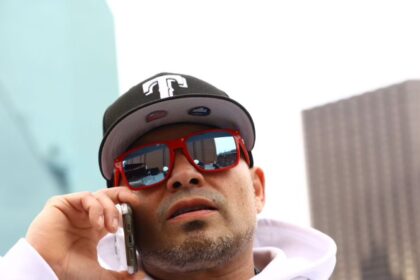On the morning of Sept. 23, UNLV starting quarterback Matthew Sluka walked into offensive coordinator Brennan Marion’s office before practice with an unexpected announcement. Sluka, a Holy Cross graduate transfer in his first year at UNLV, revealed that he had not received the name, image, and likeness (NIL) money his agent promised him when he committed to the program in January.
Threatening to sit out the remainder of the season to preserve his final year of eligibility if the issue was not resolved, Sluka further discussed the matter with head coach Barry Odom that same day. With UNLV embarking on its first 3-0 start in 40 years, including victories against formidable Big 12 opponents like Houston and Kansas, Sluka’s decision created a sense of urgency within the coaching staff.
Following that morning’s practice, Sluka bid farewell to the Rebels. The next evening, he took to social media to announce his departure. “I committed to UNLV based on certain representations that were made to me, which were not honored after I enrolled,” he wrote.
— Matthew Sluka (@MatthewSluka) September 25, 2024
While the NCAA prohibits schools like UNLV from promising NIL deals to secure player commitments, such practices are prevalent. The lack of repercussions due to recent legal rulings has emboldened some to make empty promises.
In Sluka’s case, conflicting claims arose between his father, Bob, and agent, Marcus Cromartie of Equity Sports, and the UNLV football program. Despite the apparent miscommunication, Sluka’s decision to walk away underscored the complexities surrounding NIL deals in college sports.
Sluka’s departure raised concerns about the evolving landscape of NIL agreements in college football. With no clear guidelines or regulations, schools, players, and agents navigate through uncharted territory, often leading to misunderstandings and disputes.

GO DEEPER
College football portal confidential: How tampering, NIL deals and portal chaos happen
The contentious nature of Sluka’s situation shed light on the challenges within the NIL landscape. UNLV’s experience serves as a cautionary tale for other programs and student-athletes navigating the complexities of NIL agreements.
As college football continues to grapple with the ramifications of NIL deals, transparency, communication, and accountability must be prioritized to uphold the integrity of the sport and protect the interests of those involved.

GO DEEPER
In college football’s version of free agency, where do NIL agents come in?








